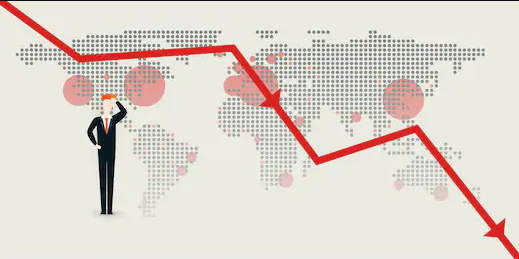ISLAMABAD: Lower remittances will exacerbate Pakistan’s already weak external positions, says Moody’s latest report.
The report said, ” Lower remittances after corona virus to hurt consumption, raise external risks in major recipient countries”, stated that the corona virus pandemic had triggered a fall in the wages of, and loss of employment for migrant workers. Remittance transfers by these workers to their home countries will decline sharply as a result, by around 20 percent ($110 billion) globally in 2020, according to the World Bank estimates. The countries that are most dependent on remittances are largely low- and middle-income economies.
Many countries that source a large share of their remittances from the GCC and Russia, where oil production plays a dominant role in the economy, will be indirectly hit by the fall in prices. A retrenchment in the Russian economy would feed into much of the Commonwealth of Independent States (CIS), with remittance-reliant Kyrgyz Republic and Tajikistan being especially vulnerable.
Weakness in the GCC will especially hurt South Asian economies including Pakistan as well as Bangladesh and Sri Lanka, the report highlighted. The decline in incomes and economic strength is likely to be more gradual but the hit to current account receipts and weakening of external position can be abrupt. The external resilience of certain countries will also deteriorate, including Pakistan.
For Ukraine, Jordan and Pakistan, net oil imports and remittance inflows are similar in size. A 20 percent fall in remittances would be offset by lower oil prices. For most of the other remittance-reliant sovereigns, the proportion of remittance inflows to GDP is much greater than net oil imports to GDP.
The effect of a 20 percent decline in remittances outweighs that of the fall in oil prices on the current account balances for these countries. Beside oil prices, a further mitigating factor is that lower consumption will lead to a decline in imports, such as by compressing luxury goods and services imports. This will reduce the negative impact on the current account balance from lower remittances.
Weaker remittances will weigh on the balance of payments of remittance-dependent sovereigns, compounding the impact of lower exports and private investment inflows as the global economy weakens and investors seek safe havens.
As indicated by their respective external vulnerability indicators (EVI), many affected sovereigns such as Tajikistan, Ukraine, Sri Lanka and Pakistan have already exhibited significant external vulnerability even before the corona virus outbreak. For these sovereigns, lower remittances will exacerbate their already weak external positions, the report said.




